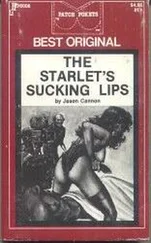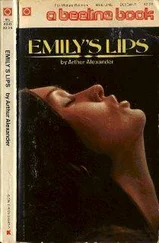The door was locked, but Marsha stuck her fingers under the edge of the hall carpet and groped around till she found a key.
Like Sophie's flat, this one was on two levels. On the first level, just inside the front door, was the kitchen. I stopped on the threshold and looked around, not wanting to soil my fingers by touching anything. It was the size of Sophie's kitchen and bathroom combined, but the fittings were cracked and antiquated, and spiders abseiled idly down the dirty green walls. On the draining-board sat a single glass tumbler turned mossy and opaque with the encrustations of time, and the hob of the electric cooker was besmirched with rusty stains which might once have been tomato sauce.
We went up, without speaking, to the living-room. I'd imagined it as Sophie had described it — shabby but comfortable armchairs by the gas fire, walls lined with bookshelves, a donnish atmosphere — but it wasn't like that at all. There was no furniture, the floorboards were bare, and the dust so thick that here and there it had gathered into clumps, like ghostly tumbleweed. There was a dank smell, as though the windows hadn't been opened since the Stone Age. There were curtains, but the fabric looked frangible, as though it would crumble away if you tried to draw them.
'You see,' said Marsha. 'No one's lived here for years. Not really. Not since Robert…'
'What happened to his furniture?'
'He was always behind with the rent. All his stuff must have gone to the landlord. Not that it would have amounted to much.'
I wandered into the bedroom, and behind me the dust closed over my footsteps. There were signs of life in here, as though someone had made a half-hearted stab at cleaning up.
'So tell me,' I asked Marsha, 'why is it still empty?'
'I really don't know,' said Marsha. 'There's the suicide, of course, but I don't suppose that would put anyone off, not these days. I imagine there are some people who might even think it enhanced the value of the place.'
'I'm surprised no one's squatted,' I said.
Marsha made a non-committal face. 'Friends of mine sometimes put sleeping-bags down here. Mostly nomadic types who are just passing through and need a temporary base.'
'You give them the key?'
Marsha gave me a sidelong glance. 'Why? Do you want it?'
'Why not?' I said jokily, knowing she wasn't being serious.
We retraced our steps. The bathroom was wedged between the bedroom and living-room, as though squeezed in as an afterthought. We peered into the shadows. There was no natural light, and nothing happened when I yanked on the light cord, but we could just about see the cracked mirror over the washbasin, gleaming dully in the shadows.
'This was where he…?'
'In front of that very mirror,' Marsha said with a shudder that was not entirely devoid of pleasure. 'Just after my birthday, it was. The thirty-first of October. Halloween. Can you believe it?'
We both stared hard at the floor. There was plenty of dust and grime, but I couldn't see anything that might have been bloodstains. Then again, you couldn't see much in that Stygian gloom.
'Why did he do it?' I asked.
Marsha shook her head. 'Why does anyone do anything? He was just depressed, I guess. Always was a bit of a misery.'
'Were you good friends?'
'No,' Marsha said quickly. 'We weren't friends at all.'
Something in her manner made me stop asking questions. Talking about Robert Jamieson was obviously making her uncomfortable.
We returned to the relative brightness of the living-room. 'The first time we ever met,' I said carefully, 'you said I should ask the agents about this flat. But that was when I thought poor old Robert was still in residence, so I never followed it up.' I paused, hardly daring to breathe, and then asked, 'How much rent would they want?'
Marsha made a face. 'I wouldn't ask them,' she said. 'They'd charge you an arm and a kidney. My rent's pegged, but Sophie's paying through the nose.'
Another of my dreams evaporated. 'That's what I thought', I said, trying not to let the edges of my mouth droop.
Marsha suddenly cackled. 'But Sophie can afford to pay through the nose, can't she? Sophie's rolling in it.' She thrust her hands into the pockets of her suede trousers and did a peculiar little shuffling dance step, dislodging a great many clumps of dust. I watched silently, wondering if this were her normal behaviour or an aberration.
When Marsha had finished her soft shoe shuffle, she turned back to me with a mischievous gleam in her eyes and said, 'Why don't you just move in?'
I couldn't believe that I'd heard her right. I didn't dare say anything in case it broke the spell and she changed her mind.
'Why not?' Marsha went on. 'You want to live here, don't you? Who's going to know? Who's going to care? I'm surprised no one's dossed down already, though I suppose you'd never guess from the street that the place is empty. I mean, what's the worst that can happen? The landlord can have you thrown out?'
I could think of worse things. I forced myself to address them now. 'Those friends of yours,' I said, straining to sound nonchalant, 'the ones who slept here. Did they ever, you know, complain… about anything?'
'What do you mean?' Marsha asked briskly.
I struggled to find the best way of expressing it. 'Did they ever… hear anything?'
She looked vacant for a moment before cottoning on. Then, very slowly and deliberately, shook her head.
I wasn't entirely convinced. 'How about you? Did you ever hear it?'
She folded her arms. 'Hear what exactly?'
'Music,' I said. 'Sophie kept hearing music which shouldn't have been there.'
'Clare,' said Marsha, 'I have lived here for almost sixteen years and never heard anything out of the ordinary. There is no music. The only time there has been any music is during August Bank Holiday and the Notting Hill Carnival, which I grant you is a bloody great pain in the arse.' Her tone became gentler. 'Your friend is suffering from some sort of nervous collapse. She just split up with her boyfriend, right?' She tapped the side of her head. 'Poor girl needs a shrink, not an exorcist.'
Marsha went downstairs to check on Sophie, leaving me to wander around the empty flat and daydream. The idea of moving in there was seeming less preposterous and more of a practical proposition by the second. I was already imagining the walls painted white. I could already see shelves bowing gently beneath the weight of my books, which I would have arranged in alphabetical order by author, or title, or perhaps by subject, colour, or size — I hadn't yet decided. I could see Miles, with a Martini glass in his hand, and Larry and Berenice and all the other people to whom I owed dinners but had never had the nerve to invite to Hackney, because I knew they would have turned the invitation down. In my mind's eye, the rooms were already thronged with ghosts, but they were my ghosts, and it was I who had invited them there.
And so I achieved my heart's desire. I held on to the flat in Hackney, in case the new arrangement fell apart, but the rent was negligible, and I found a surprising number of short-term visitors to London who were only too willing to pay it for me, and not one of them complained about being stuck on the wrong side of town.
But at long last I was moving west. West to the land of silk and money, to the world of plenty, to the streets of gold where the cognoscenti roamed. West to the kind of life that, up until now, I'd only been able to dream about.
I began by tackling the queues and transfers of public transport, but after only a couple of trips I'd had enough of lugging bags and cases on to trains crammed with people who scowled at me as though I were some hapless German backpacker. I rang Graham, and with a combination of cajolery and threat, talked him into spending his Saturday afternoon driving the rest of my essentials across town in his Fiesta.
Читать дальше











